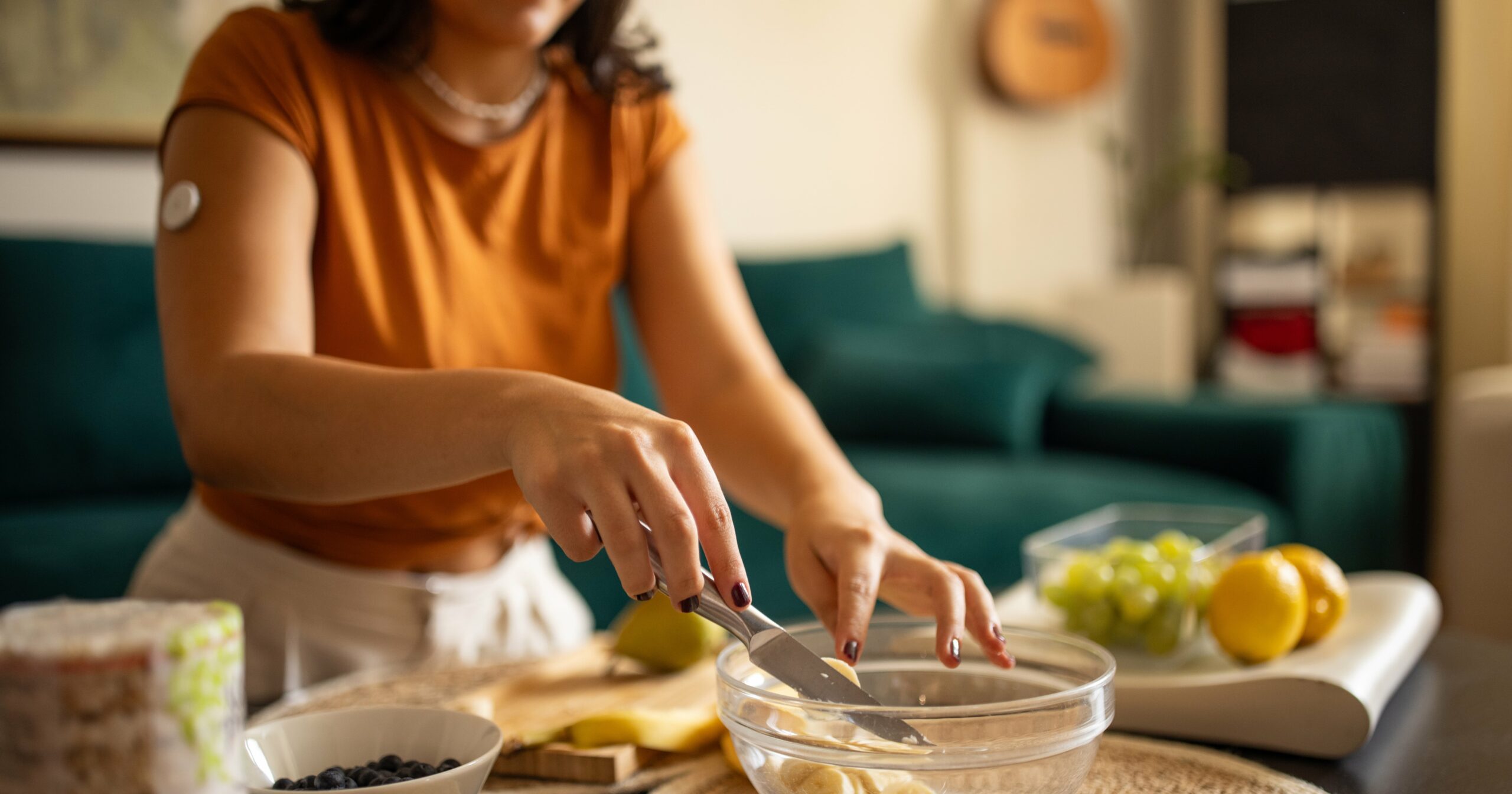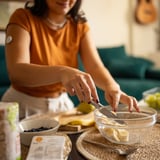Managing low blood sugar can sometimes feel like trying to steer a ship through stormy waters – but you just need the right tools and a solid plan to stay afloat. When your blood sugar dips too low, you can end up feeling shaky, confused…and ready to devour the closest snack in sight (yes, even that stale granola bar in your glove compartment). The good news? Choosing the right foods may make all the difference in balancing your energy levels and keeping your blood sugar steady throughout the day.
Sure, getting any food into a grumbling tummy can stop those hunger pangs. But while grabbing a donut or candy bar might sound tempting in the moment, they can often lead to a rapid spike in blood sugar levels. This quick surge is followed by a sharp crash, leaving you feeling even more fatigued and unfocused than before. These fluctuations in turn can disrupt your energy levels and mood, creating a vicious cycle of short-term blood sugar highs and extended lows. The key is knowing which foods actually help support your blood sugar levels- without sending you on a rollercoaster ride. Here, experts weigh in on the seven foods that are ideal to reach for in those low blood sugar moments.
Experts Featured in This Article:
Jennifer Hunt, RDN, LD is a dietitian specializing in PCOS and prediabetes.
Barbie Cervoni RDN us a dietitian and Certified Diabetes Care and Education Specialist.
Samantha DeVito, MS, RD, CDN is a registered dietitian and Certified Nutrition Specialist.
Kirbie Daily, MS, RD is a Tennessee-based sports sports dietitian.
Elena Usdenski, RD, Certified Fertility and Prenatal Dietitian.
Lauren Harris-Pincus, MS, RDN, registered dietitian and author of “The Everything Easy Pre-Diabetes Cookbook”.
What Causes Low Blood Sugar?
Low blood sugar, also known as hypoglycemia, happens when your body doesn’t have enough glucose (sugar) in the bloodstream to keep your energy up and brain working smoothly. Glucose is your body’s fuel-if you don’t have enough of it, things can go haywire. Going too long in between eating, having a meal high in refined carbs and/or sugars, and meals that lack a good balance of protein, fiber, and healthy fats can all cause your blood sugar to drop, explains Jennifer Hunt, RDN, LD, a dietitian specializing in PCOS and Prediabetes. Another potential cause? Intense physical activity, which uses up stored glucose more quickly than the body can replenish it. While these instances are typically temporary, they can lead to noticeable symptoms like dizziness, irritability, or fatigue.
Other factors can play a role, too. Drinking alcohol on an empty stomach can also lead to low blood sugar by interfering with how your liver releases glucose; the body prioritizes metabolizing alcohol over maintaining glucose balance. “Low blood sugar is also a common side effect in people with diabetes who take glucose-lowering medication, like insulin or other oral medicines,” notes Barbie Cervoni, RDN and Certified Diabetes Care and Education Specialist. More specifically, hypoglycemia can occur when a person with diabetes has taken blood sugar-managing medication without eating or delaying a meal, or taking too much medicine, she explains.
The Best Foods For Low Blood Sugar
Simply put, maintaining a healthy blood sugar is crucial for overall well-being; it directly affects your energy, mood, and long-term health. Blood sugar levels that are too low or too high can lead to fatigue, irritability, and even dizziness and confusion. Over time, consistent blood sugar imbalances can increase the risk of serious health issues, like nerve damage. While diet plays a major role in controlling blood sugar, it’s not the only thing you can do. Regular physical activity, managing stress, staying hydrated, and overall good lifestyle habits all contribute to stable blood sugar levels. That said, food is the foundation-it’s the fuel your body relies on every single day.
Eating regularly timed meals, avoiding excessive alcohol, and taking any prescribed blood glucose-managing medication appropriately are all essential for maintaining balanced blood sugar levels. But if you feel like your blood sugar may be starting to dip in between meals, it’s important to have options on hand that can help stabilize it quickly. Below, a list of expert-backed foods to reach for in those moments, along with smart choices to regularly incorporate into your diet so you can avoid these unwanted dips altogether.
Bananas
“Bananas contain natural sugars like glucose and fructose, which can quickly raise blood sugar levels. They also provide fiber, which helps to stabilize blood sugar over time. This makes bananas a great option to help both prevent episodes or correct low blood sugar in a pinch,” says Samantha DeVito, MS, RD, CDN,
Plus, their portability makes them a convenient snack for managing low blood sugar on the go. Opt for ripe bananas which have a slightly higher sugar content for a quick hit of glucose; a slightly under ripe banana will help maintain the slow and steady release of natural sugars and minimize the likelihood of irksome crashes.
Honey
A spoonful of honey is a great way to immediately combat hypoglycemia, says Kirbie Daily, MS, RD, registered dietitian. “Honey is a simple sugar that is digested and absorbed rapidly in your body, and can help raise your blood sugar levels almost immediately.” Some data suggests that honey is more effective in treating hypoglycemia than sugar cubes.
Oatmeal
Oatmeal is a complex carbohydrate that delivers slow-releasing glucose, helping to prevent drastic drops in blood sugar levels. It’s also a source of soluble fiber, which helps stabilize blood sugar by slowing down the absorption of glucose into the bloodstream. And research shows that eating oats is beneficial for glucose control even for people with type 2 diabetes. Topping oatmeal with fruit or a drizzle of honey can add a quick boost of energy.
Apples
Apples are a natural source of fructose, a type of sugar that can help restore blood sugar levels quickly. Their fiber content ensures that energy is released gradually without sudden spikes. They’re also highly portable, making them a perfect snack for those prone to hypoglycemic episodes. Up the benefits by pairing an apple with ¼ cup of nuts, suggests Vandana Sheth, RDN, CDCES, FAND, a registered dietitian nutritionist and diabetes expert “The natural sugars in the apple will raise blood sugar while the nuts provide heart-healthy fats and protein to stabilize and prevent it from falling again,” she points out.
Avocados
While avocados are low in sugar, they are a natural source of healthy fats and fiber, which help stabilize blood sugar levels. Pairing avocado with a carbohydrate source, such as whole-grain toast or crackers, provides both an immediate and sustained energy boost. The healthy fats also promote satiety, preventing further dips.
Nuts and Seeds
Nuts and seeds, like almonds, walnuts, and chia seeds, provide a robust combination of healthy fats, protein, and fiber, all of which are essential for blood sugar stability. They release energy gradually, reducing fluctuations in glucose levels. Additionally, a small handful of nuts makes for a convenient and nutrient-dense snack option for those managing low blood sugar.
“Just a 1/4 cup serving of walnuts provides around two grams of fiber and four grams of protein, both of which play a key role in stabilizing blood sugar levels,” explains Elena Usdenski, Certified Fertility and Prenatal Dietitian. Walnut oil specifically has been shown to be linked to improved blood glucose levels, according to data published in the International Journal of Endocrinology and Metabolism.
Beans
“Eating beans can help people control blood sugar, as well as to lose or maintain weight which plays a role in diabetes management,” says Lauren Harris-Pincus, MS, RDN, founder of NutritionStarringYOU.com and author of The Everything Easy Pre-Diabetes Cookbook. “The plant-based protein and fiber in beans help slow the rise in blood sugar after a meal, which aids in overall glucose control.” They also contain folate, potassium, iron, and zinc as well as antioxidants; it’s no surprise the American Diabetes Association deems them a superstar food.
Lauren Manaker (she/her) is an award-winning registered dietitian and freelance writer who is passionate about providing evidence-based nutrition information in a fun and interesting way. Lauren is a PS Council member.




